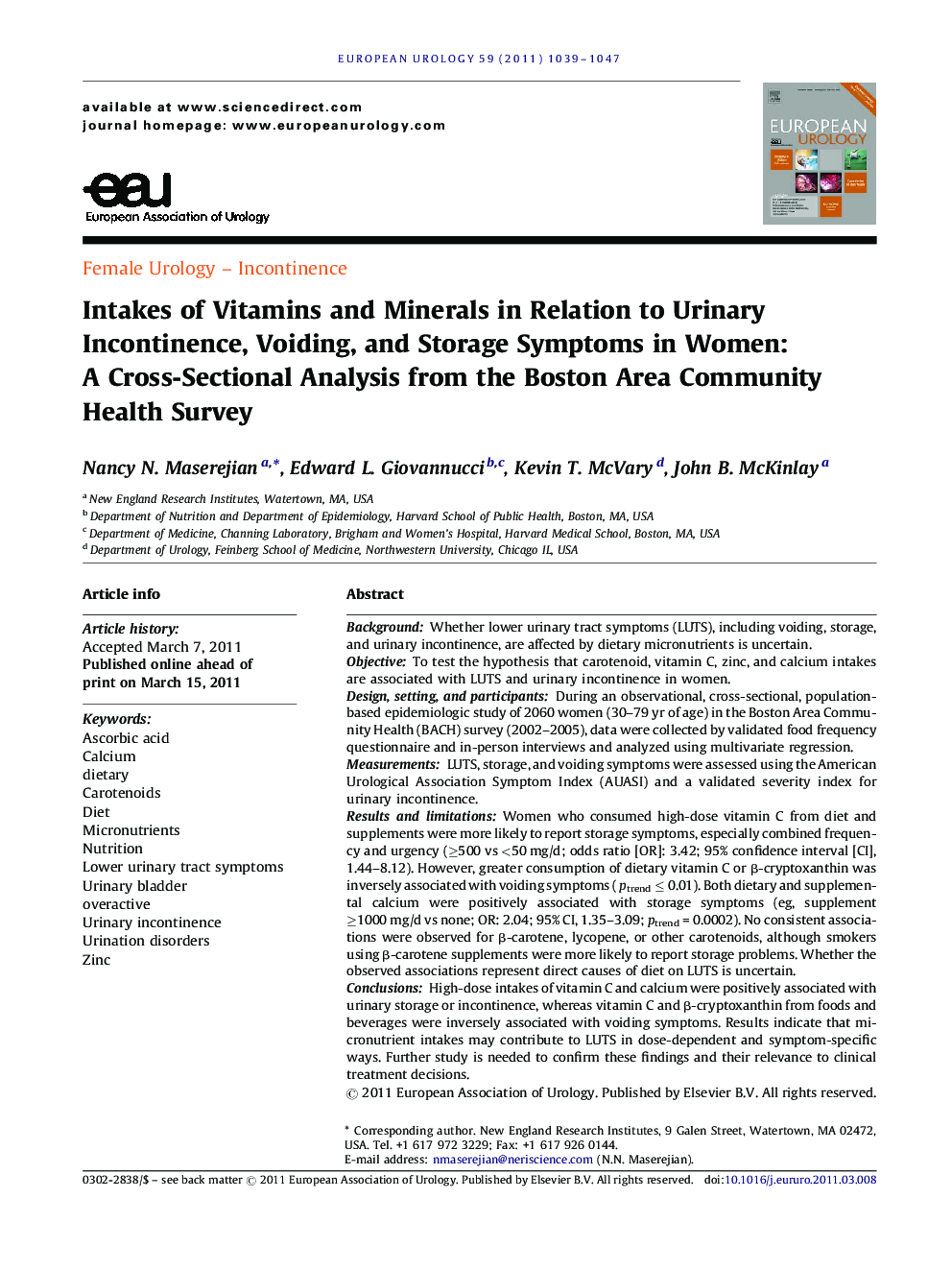| Article ID | Journal | Published Year | Pages | File Type |
|---|---|---|---|---|
| 3924591 | European Urology | 2011 | 9 Pages |
BackgroundWhether lower urinary tract symptoms (LUTS), including voiding, storage, and urinary incontinence, are affected by dietary micronutrients is uncertain.ObjectiveTo test the hypothesis that carotenoid, vitamin C, zinc, and calcium intakes are associated with LUTS and urinary incontinence in women.Design, setting, and participantsDuring an observational, cross-sectional, population-based epidemiologic study of 2060 women (30–79 yr of age) in the Boston Area Community Health (BACH) survey (2002–2005), data were collected by validated food frequency questionnaire and in-person interviews and analyzed using multivariate regression.MeasurementsLUTS, storage, and voiding symptoms were assessed using the American Urological Association Symptom Index (AUASI) and a validated severity index for urinary incontinence.Results and limitationsWomen who consumed high-dose vitamin C from diet and supplements were more likely to report storage symptoms, especially combined frequency and urgency (≥500 vs <50 mg/d; odds ratio [OR]: 3.42; 95% confidence interval [CI], 1.44–8.12). However, greater consumption of dietary vitamin C or β-cryptoxanthin was inversely associated with voiding symptoms (ptrend ≤ 0.01). Both dietary and supplemental calcium were positively associated with storage symptoms (eg, supplement ≥1000 mg/d vs none; OR: 2.04; 95% CI, 1.35–3.09; ptrend = 0.0002). No consistent associations were observed for β-carotene, lycopene, or other carotenoids, although smokers using β-carotene supplements were more likely to report storage problems. Whether the observed associations represent direct causes of diet on LUTS is uncertain.ConclusionsHigh-dose intakes of vitamin C and calcium were positively associated with urinary storage or incontinence, whereas vitamin C and β-cryptoxanthin from foods and beverages were inversely associated with voiding symptoms. Results indicate that micronutrient intakes may contribute to LUTS in dose-dependent and symptom-specific ways. Further study is needed to confirm these findings and their relevance to clinical treatment decisions.
